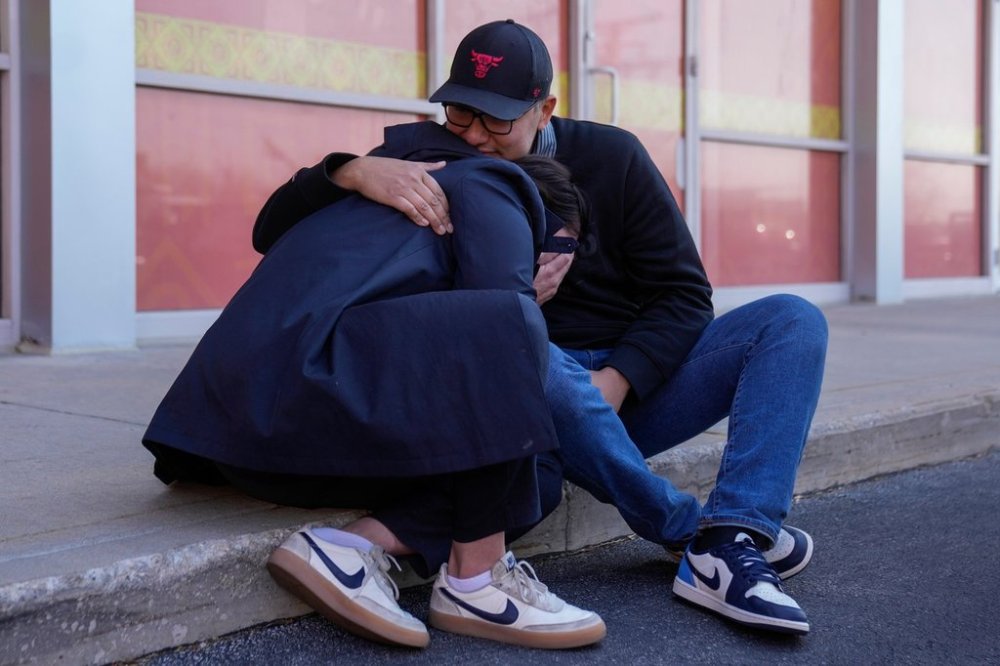Judge will order federal agents in Chicago to restrict using force against protesters and media
Advertisement
Read this article for free:
or
Already have an account? Log in here »
We need your support!
Local journalism needs your support!
As we navigate through unprecedented times, our journalists are working harder than ever to bring you the latest local updates to keep you safe and informed.
Now, more than ever, we need your support.
Starting at $15.99 plus taxes every four weeks you can access your Brandon Sun online and full access to all content as it appears on our website.
Subscribe Nowor call circulation directly at (204) 727-0527.
Your pledge helps to ensure we provide the news that matters most to your community!
To continue reading, please subscribe:
Add Brandon Sun access to your Free Press subscription for only an additional
$1 for the first 4 weeks*
*Your next subscription payment will increase by $1.00 and you will be charged $20.00 plus GST for four weeks. After four weeks, your payment will increase to $24.00 plus GST every four weeks.
Read unlimited articles for free today:
or
Already have an account? Log in here »
CHICAGO (AP) — A federal judge said Thursday she will order federal agents in Chicago to restrict using force against peaceful protesters and media, saying current practices violate their constitutional rights.
The preliminary injunction came in response to a lawsuit alleging federal agents have used excessive force in their immigration crackdown in the Chicago area.
U.S District Judge Sara Ellis ‘s ruling, which is expected to be appealed by President Donald Trump’s administration, refines an earlier temporary order that required agents to wear badges and banned them from using certain riot-control techniques, such as tear gas, against peaceful protesters and journalists. After repeatedly chastising federal officials for not following her previous orders, she added a requirement for body cameras.

Ellis, who began Thursday’s hearing by describing Chicago as a “vibrant place” and reading from poet Carl Sandburg’s famous poem about the city, said it is “simply untrue” that the Chicago area is a violent place of rioters. A day earlier, attorneys for both sides repeatedly clashed in court over the accounts of several incidents during the immigration crackdown that began in September, including one where a Border Patrol commander threw a cannister of tear gas at a crows.
“I don’t find defendants’ version of events credible,” Ellis said.
Ellis said agents will be required to give two warnings before using riot control weapons and that agents are restricted from using force unless it is “objectively necessary to stop an immediate threat.”
She described protesters and advocates facing tear gas, having guns pointed at them and being thrown to the ground, saying “that would cause a reasonable person to think twice about exercising their fundamental rights.”
The preliminary injunction stems from a lawsuit filed by news outlets and protesters who say agents have used too much force during demonstrations.
During Wednesday’s eight-hour hearing, witnesses gave emotional testimony when describing experiencing tear gas, being shot in the head with pepper balls while praying, and having guns pointed at them when recording agents in residential streets.
Ellis questioned witnesses about how these experiences impacted them and if they prevented them from protesting again. One after another, witnesses described their anxiety about returning to protests or advocacy work.
“I get really nervous because it just feels like I’m not safe,” Leslie Cortez, a youth organizer in the Chicago suburb of Cicero, told Ellis. “And I question my safety when I go out.”
Attorneys also played footage of a five-hour deposition, or private interview, of senior Border Patrol official Greg Bovino, where he defended agents’ use of force and dodged questions about Border Patrol tactics in the nations’ third-largest city.
